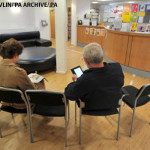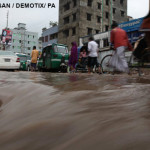 • Suspend inspections of GP surgeries
• Suspend inspections of GP surgeries
The BMA and the Royal College of General Practitioners have both come out with strong reactions to the inspections of GP surgeries by the Care Quality Commission (CQC), which has been beset by problems since it started last November. At the BMA’s annual representative meeting in Liverpool, delegates voted overwhelmingly to call for the whole system to be suspended, which they agreed was not fit for purpose.
On the same day, the royal college wrote to health secretary Jeremy Hunt calling for an “urgent review of the CQC’s regulatory regime, to eliminate unnecessary bureaucracy, and to ensure that it reflects the distinctive nature of general practice and focuses on what matters most to patients.”
 • China rejects patent for hepatitis C drug
• China rejects patent for hepatitis C drug
Another country has rejected a patent application for sofosbuvir (Sovaldi), the billion dollar earning drug for hepatitis C from US biotechnology firm Gilead Sciences. China follows Egypt and India in claiming that the main ingredient of the drug is not novel, opening up the possibility of a generic—and much cheaper—version of sofosbuvir appearing on the Chinese market soon. The global humanitarian charity Médecins Sans Frontières said the decision in China could help to push down the price of sofosbuvir in other countries.
 • Act on climate change
• Act on climate change
Climate change provides an opportunity to make big improvements in human health, because the changes needed to counter it will clean the air, encourage more active lives, rebuild cities in a more humane way, and improve the diet of those who live in them, says the Commission on Climate Change set up by the Lancet. If nothing is done, the increasing frequency of direct effects such as heat waves, floods, droughts, new patterns of disease, insecure food supplies, and conflicts have the capacity to undo the gains of the past 50 years in development and human health, it says.
Zosia Kmietowicz, news editor, The BMJ.
